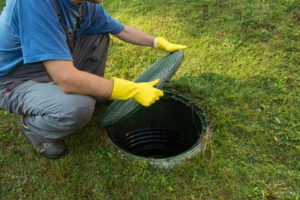
Beyond the convenience it brings to households, responsible septic system maintenance plays a pivotal role in environmental conservation. This blog aims to delve into the ecological implications of neglecting septic system care and highlight the positive impact of conscientious maintenance practices.
The Environmental Consequences of Neglect
- Contamination of Groundwater: Neglecting septic system maintenance can lead to the leakage of untreated wastewater into the ground. Harmful pathogens and contaminants present in sewage may then infiltrate the groundwater, jeopardizing the quality of the local water supply.
- Soil Degradation: Over time, septic systems that are not properly maintained can experience failure, resulting in the oversaturation of soil with effluent. This excess wastewater can lead to soil degradation, making it less productive for vegetation and more prone to erosion.
- Impact on Aquatic Ecosystems: When septic systems fail, the pollutants they release can find their way into nearby water bodies. This poses a direct threat to aquatic ecosystems, causing imbalances in water chemistry and endangering fish and other aquatic life.
The Positive Environmental Contribution of Proper Septic System Care
- Preventing Water Contamination: Regular septic tank pumping and maintenance help ensure that contaminants are properly treated before wastewater is released into the drain field. This reduces the risk of groundwater contamination and preserves the integrity of local water sources.
- Maintaining Soil Health: Proper septic system care prevents soil oversaturation and the subsequent degradation that can occur. By managing the flow of wastewater effectively, homeowners contribute to the health and fertility of the soil surrounding their properties.
- Protecting Biodiversity: A well-maintained septic system minimizes the release of harmful substances into nearby water bodies, safeguarding the biodiversity of aquatic ecosystems. This is particularly crucial in areas like Sykesville, where natural habitats coexist with residential communities.
- Mitigating Greenhouse Gas Emissions: Neglected septic systems can produce methane, a potent greenhouse gas. Regular maintenance, including proper aeration and treatment, helps mitigate the release of these gases into the atmosphere, contributing to climate change mitigation efforts.
By understanding the potential environmental consequences of neglect, residents can make informed choices that not only preserve the functionality of their septic systems but also contribute to the long-term health of the environment they call home. Let us join hands in fostering a community that values and actively participates in the conservation of our shared natural resources.
Contact Freedom Septic Service at (410) 795-2947 today or visit us online for more information about septic tank installation and maintenance.
